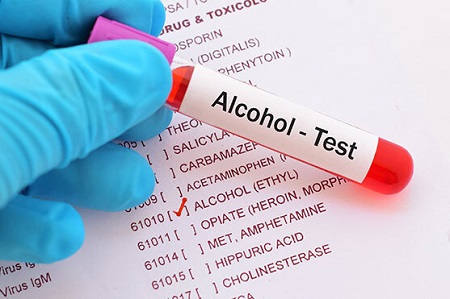In this article, you can discover:
- Whether a toxicologist can challenge the accuracy of breath and blood tests in a DWI case.
- How toxicologists can be questioned during cross-examination in court.
- The effects of medication on breath and blood test results.
Can A Toxicologist Challenge A Breath Or Blood Test In A DWI Case?
Absolutely. In some cases, the government needs to present the testimony of a toxicologist to make the blood or breath test admissible. However, during cross-examination, the toxicologist can be challenged regarding the conduct of the test and whether proper procedures were followed. Mistakes in the test itself, as well as errors in interpretation and how the test relates to the concentration at the time of driving, can be subjects of the examination.
Additionally, independent toxicologists can be called to testify for the defense, highlighting potential flaws in the test’s conduction and arguing for its inadmissibility. Their testimony can question the reliability of the results and challenge the notion that the person was intoxicated at the time of driving.
Can A Toxicologist Identify Factors Causing A False BAC In A DWI Case?


In the case of blood tests, the toxicologist can speculate whether medications might have contributed to the appearance of intoxication.
The blood test may also reveal values for specific drugs or medications, which the toxicologist can discuss in terms of their potential impact. Cross-examination can explore the effects of the medication or drug levels on the person’s impairment at the time of driving.
It’s important to note that the breakdown of drugs into metabolites can indicate whether the drug was taken at therapeutic levels over an extended period, potentially rendering it non-intoxicating. This aspect can be questioned during cross-examination.
How A Toxicologist Helps Your Defense Attorney Challenge A DWI Case
The toxicologist can assist the defense by examining the blood test comprehensively, including all substances tested for. They can testify about studies or lack thereof, showing whether particular levels of drugs cause impairment or intoxication.
Additionally, the toxicologist can analyze the levels of metabolites to determine if the drug was consumed much earlier, possibly days before, and has broken down into non-intoxicating substances or reached such low levels that they would not cause impairment.
Can The Prosecution Also Call A Toxicologist To Testify In A DWI Case?
How Can You Prepare For Cross-Examination By The Prosecution?
Yes, the prosecution can call a toxicologist, and in most cases, they must do so to make their breath or blood test admissible in court. During cross-examination, our attorneys can challenge the toxicologist’s testimony regarding the conduction of the blood or breath test.
Supporting documentation and records obtained through subpoena can reveal improper procedures, malfunctioning machines, or inaccurate test results, casting doubt on the reliability and accuracy of the test in the specific case. By thoroughly examining the records, our DWI attorneys can demonstrate that the test may not be reliable, potentially leading to the test’s inadmissibility in court and challenging the notion that our client was intoxicated at the time of driving.
For more information on the Role Of A Toxicologist In A DWI Case In Texas, an initial consultation is your best step. Get the information and legal answers you are seeking by calling (682) 204-4066 today.
Similar Posts by The Author:
Publicaciones Similares del Autor:
(682) 204-4066 We cannot receive pictures via text so please send those via email or hand deliver to our office.





